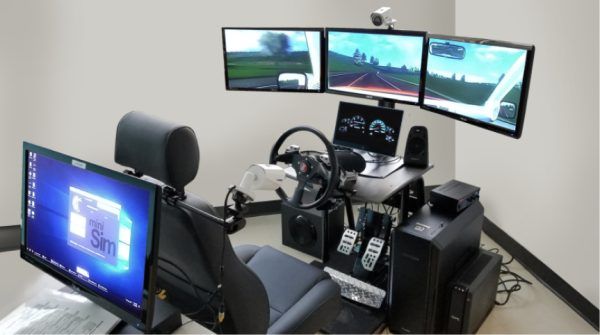proprietary technology
Driving
simulator
Our proprietary, customized driving simulator creates a highly immersive, realistic driving simulation. Conforming to the FDA Guidance for Dedicated Driving Studies, the CRCDS is validated to impairment associated with 0.05BAC – the FDA’s gold standard for impairment. It is the only driving simulator validated for use in multi-site clinical trials.
Why incorporate
TECH in your trial design?
Enhanced labeling / product differentiation
first in human trials
prescription to otc
fda required, dedicated driving studies
Psychedelic Therapy – When is it safe to resume driving?
When is it safe to resume driving? Determining the impact medication may have on driving ability is an important safety determination in clinical trials particularly for drugs that affect the central nervous system.

proprietary CRCDS
specific features
FDA’s Gold Standard
Validated to impairment associated with 0.05% BAC.
Advanced 3D Simulations
Realistic driving experiences with comprehensive psychomotor, attention, and awareness evaluations. Advanced representations of various driving environments including the vehicle dashboard, roadway, horizon, secondary task displays, intersections, traffic control devices and interacting traffic.
Precision & Reliability
Scenarios designed for acute sensitivity to both therapeutic and adverse effects, delivering dependable study results.